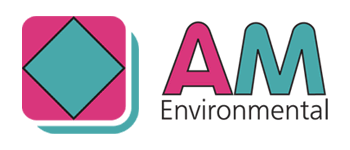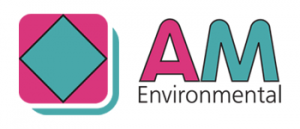The Sterimelt – a “world first” solution for recycling clinical sterilisation wrap for the healthcare industry – not only diverts large amounts away from landfill and/ or incineration, but it also reduces the carbon footprint and costs created by transporting this very lightweight and space hungry material. The concept behind the Sterimelt machine was attributed to its sister company, Styromelt, which recycles polystyrene (or EPs as it’s more commonly known).
TCG was originally approached by Kimberly Clarke Healthcare, now called Halyard Health (HYH), to address the problem of how to recycle this useful plastic polymer. TCG built a proto-type machine, called “Sterimelt” and relied heavily on HYH to supply clean unused samples of sterilisation wrap. This formed the basis for the concept.
After extensive testing and experimentation in our own facility in order to get the correct parameters to carry out the process, Sterimelt needed to be operated in a full working environment in which to trial its suitability on a hospital site. Once situated in a live hospital environment and working on a semi-continuous basis, this highlighted additional operational issues which again had to be addressed.
The prototype Sterimelt was installed at St Woolos Hospital in Newport. The technology has since undergone an 18-month long trial in collaboration with our NHS partners, Aneurin Bevan University Health Board (ABUHB) and, during this time all operational issues were overcome.
It was found to be capable of a minimum six cycles per day and, by processing clinical sterilisation wrap waste from Newport’s Royal Gwent Hospital alone, it produced 90-110kg of sterile plastic blocks daily, recycling around two tonnes of wrap every month. Introduction of the Sterimelt has enabled ABUHB to make significant cost savings and generate extra revenue through the sale of the plastic processed blocks. The recycling process is being scaled up within ABUHB and the first production Sterimelt has now been ordered by the hospital in Newport, and is currently being manufactured.
What’s A Wrap?
CLINICAL STERILISATION wrap is a non-woven polypropylene wrap used to maintain the sterility of medical instruments and equipment in a hospital operating theatre. The material can also be used as bed sheets (and increasingly more common, as curtains) on wards and also as covers over the patient while on the operating table. A significant amount of hospital waste from operating theatres is this clinical sterilisation wrap. The vast majority of it is uncontaminated and therefore non-hazardous. However, it is common practise to commingle the uncontaminated with the contaminated wrap, which then falls into the category of hazardous waste under the European Waste Directive Framework. While it is classified as hazardous, this means that it requires specialist handling, is significantly more expensive to remove than non- hazardous waste and will be disposed of by incineration or landfill.
The Sterimelt allows hospitals to deal with the non-hazardous clinical sterilisation wrap waste on the hospital site with a more efficient, compliant and sustainable system. The process has been visited and approved by Natural Resources Wales using its aligned English counterparts, The Environment Agency’s position statement and legislation.
In the process of manufacturing clinical sterilisation wrap, dense beads or pellets of polypropylene plastic polymer are melted to make the finished product. The Sterimelt machine, which is comparable to a large oven, reversed the manufacturing process by applying carefully controlled heat to re-melt the wrap. It becomes a liquid that can flow into a mould cavity, creating a dense block of single polymer; polypropylene plastic. As a result, the volumetric size of the waste is also reduced by up to 90 percent.
The plastic blocks produced by the machine are sterile and have been independently tested, so they can be categorised as non-hazardous waste and are consequently easier and cheaper to handle and recycle. They even have commercial value, due to the fact that they can be granulated for reuse in the manufacturing of new products. Therefore, in addition to reducing the amount of money that needs to be spent on specialist waste disposal, the system opens up a new revenue stream for the NHS or private healthcare sector; which can sell the processed blocks for profit. The Sterimelt machine itself, although protected by global patents, is simple to operate and only one button needs to be pressed manually to start it. It then processes the waste automatically. It also allows for real time data recording.
At the end of the cycle, the solidified material is removed and the Sterimelt can be refilled to start the process again. It does not release any harmful gases during operation, which has been verified by an independent test report and a comprehensive filtration system is used to reduce any unusual “plastic” polyaromatic odours that can occur when heating any plastic polymer. The exhaust output is harmless, but could be a source of unfamiliar odours for people who work or live in its vicinity, if the exhaust was left unfiltered.

